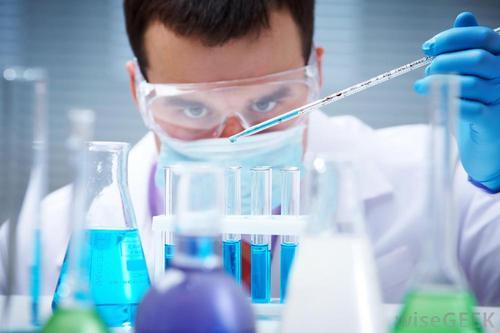When did chemical engineering come about; Who made it a profession?
The development of chemical engineering in the world dates back to the 1800s. These dates are also the years when the Industrial Revolution took place and mass production methods began to be developed.

In these years, chemical engineering had not yet taken its place among the main engineering branches. When we examine the sources, we see that the personnel working in the chemical industry at that time and using their chemistry knowledge actively in the sector are called industrial chemists. This title is quite inadequate to describe the work and features covered by today's modern chemical engineering.
In the years of the Industrial Revolution; Many chemical processes were needed to produce large quantities of many products such as dyes, pharmaceuticals, food (especially sugar). Today, many processes such as distillation, extraction, chemical reaction are used in the production of many products that we use in our daily life. The need for chemical processes to produce high value-added products has led to the establishment of large-scale facilities and the emergence of different scientific and technical disciplines.
So, who was the founder or founders of chemical engineering? It was George E. Davis who laid the first foundations for chemical engineering to be considered as a separate engineering and to take its current position. Born in England in 1850, Davis worked in chemical plants of the time in positions such as consultant and inspector. The working conditions of that period were naturally quite bad and the technologies used were still in their infancy.
This chemical engineering adventure of Davis was indeed due to the inadequacies of the chemical industry of the period. The profession, which until then was known as an industrial chemist, had to undergo a radical change. The chemical industry needed an engineering approach. This is clear from a letter Davis wrote in 1880 to the editor of Chemical News, a journal of the time:
"Many processes can be performed quite successfully by chemists in laboratories, but few can perform chemical processes on large scales simply because they lack physical and mechanical knowledge along with chemistry knowledge."
With this in mind, Davis set out to establish a chemical engineering association, but the name of the association became "Society of Chemical Industry". However, by 1922, his dream "Institution of Chemical Engineers" was to be established.
Davis made chemical engineering a profession in 1887, when he gave lectures at the technical school in Manchester. In these courses, Davis was not teaching students anything different from the industry knowledge that had been built up to that point. But that wasn't what made the lessons special. Davis thought that the processes used and to be used in the chemical industry had a lot in common. These common points are; It could have gathered many chemical processes under a single process, creating a fundamental starting point for the discipline of chemical engineering. As a matter of fact, it did.
His "A Handbook of Chemical Engineering", which he wrote in 1901, attracted great attention and its second edition was published in 1904. Davis thought that concepts such as steam production and distribution, transport of solids, liquids and gases, heat transfer, separation processes, evaporation, and crystallization were the basis of chemical engineering. These thoughts, the lectures he gave and the handbook he wrote made chemical engineering recognized as a professional discipline.
George Edward Davis (1850–1907) is regarded as the founding father of the discipline of chemical engineering. Davis was born at Eton on 27 July 1850, the eldest son of George Davis, a bookseller. At the age of fourteen he was apprenticed to a local bookbinder but he abandoned this trade after two years to pursue his interest in chemistry. Davis studied at the Slough Mechanics Institute while working at the local gas works, and then spent a year studying at the Royal School of Mines in London (now part of Imperial College, London) before leaving to work in the chemical industry around Manchester, which at the time was the main centre of the chemical industry in the UK.
As a result of the development of the chemical industry and technological advances, the scope of chemical engineering has expanded and has taken its essential place next to the main engineering branches of mechanical, electrical and civil engineering. Today, chemical engineering deals with the production processes of many organic and inorganic raw materials such as petroleum and metals, and many products that we use in our daily lives. Chemical engineering principles are used and chemical engineers work in many places, from refineries where crude oil is purified and converted into many fuels and products such as gasoline, naphtha, diesel and diesel, to facilities and laboratories where biological and chemical drugs are produced and researched.
